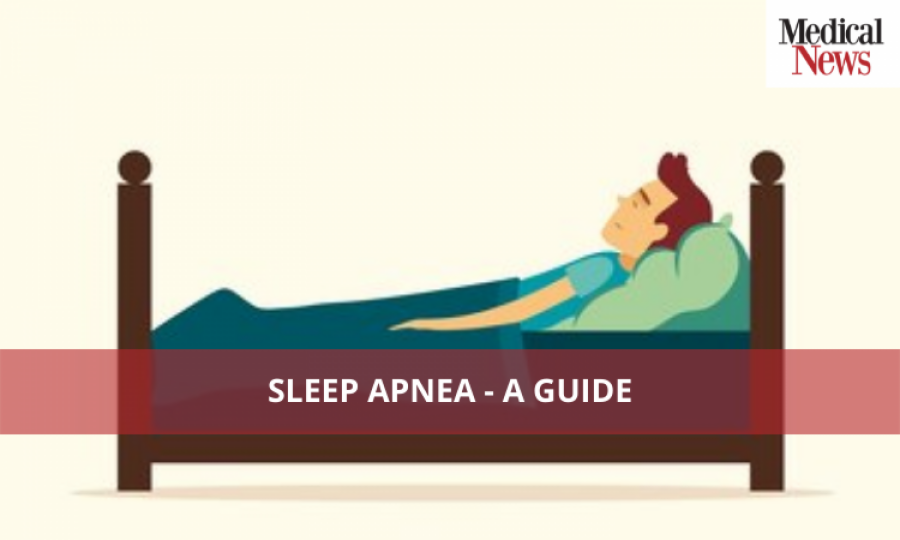Sleep Apnea - A Guide

Sleep apnea is a serious sleep disorder in which your breathing starts and stops during
sleep. If left untreated, it can cause serious health problems.
Types and Causes
There are three main types of sleep apnea. These are:
● Obstructive Sleep Apnea
The most common form arises when the muscles at the back of the neck relax.
When this happens, the airway narrows during inhalation. It leads to insufficient
air supply, which makes your brain arouse you from sleep. It prevents you from
reaching the deep and restful phases of sleep.
● Central Sleep Apnea
A less common version in which central nervous system function is impaired. The
brain cannot transmit signals to the breathing muscles. This means that you do
not try to breathe for a while. It can lead to shortness of breath and difficulty in
falling or staying asleep.
● Complex Sleep Apnea Syndrome
It is a combination of central and obstructive sleep apnea.
Risk Factors
Obstructive Sleep Apnea
● Obesity as excessive fat deposits in the upper airway can obstruct breathing
● Thick necks have smaller airway passages
● Narrow throats
● Males are two times more likely to develop sleep apnea than females.
● Women after menopause
● Increased age
● Family members with sleep apnea
● Smokers are three times more likely to have this disorder than those who have
never smoked.
● Nasal congestion
● Medical conditions like high blood pressure, congestive heart failure, type 2
diabetes, Parkinson’s disease, hormonal disorders and asthma
Central Sleep Apnea
● More common in males than females
● Increased age
● Heart disorders like congestive heart failure
● Use of narcotic pain medication like long-acting opioids
● Stroke
Symptoms
● Loud snoring
● Gasping for air during sleep
● Dry mouth or sore throat in the morning
● Daytime sleepiness and fatigue
● Morning headaches
● Problem staying asleep
● Decreased attention span
● Mood disturbances
● Night sweats
Complications
It increases the risk of:
● High blood pressure
● Heart problems like recurrent heart attack and stroke
● Insulin resistant and type 2 diabetes
● Metabolic syndrome with high blood pressure and sugar, abnormal cholesterol
levels, and increased weight circumference
● Complications with some medication, general anaesthesia, and surgeries
● Liver problems like non-alcoholic fatty liver disease
Diagnosis
Sleep evaluation tests include:
● Polysomnogram (PSG)- an overnight sleep study conducted in a laboratory
under the supervision of a trained professional. Various body functions, such as
brain and muscle activity, blood oxygen levels, eye movements, heart rate, and
breathing patterns, are recorded during sleep. After the study, the severity of the
apnea is graded depending on the number of times breathing is impaired during
sleep.
● Sometimes a Home Sleep Test (HST) can be performed on adults if they meet
the requirements. This modified form records fewer body functions as compared
to the above test, including blood oxygen levels, snoring, airflow and breathing
effort, to diagnose moderate to severe obstructive sleep apnea.
Management
● Control weight
● Avoid alcohol and certain sleeping pills
● Avoid smoking
● Healthy sleeping habits
● Use of nasal sprays for people with sinus problems or nasal congestion
● Mechanical therapy
● Surgery
Trending
Popular
Sindh pledges vigorous action to prevent poliovirus transmission
-
PMA stresses health equity on World ...
04:08 PM, 9 Apr, 2024 -
Dow University’s new rabies vaccine ...
12:18 PM, 28 Mar, 2024 -
IRD role lauded in advancing ...
02:53 PM, 12 Mar, 2024 -
Over one billion people worldwide ...
09:48 AM, 5 Mar, 2024




